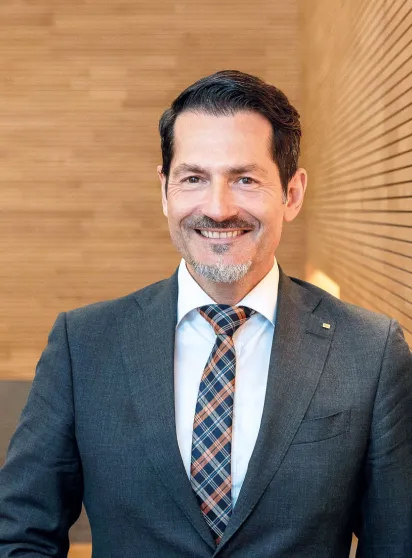TUM President’s Foreword

A year ago, I called on us as scientists to uphold our values, lead by example, and take on our responsibility to future generations.
Twelve months later, this message holds greater relevance than ever. Germany is navigating a fundamental transformation of its industrial landscape amid rising geopolitical and social uncertainties. At the same time, trust in both politics and science is eroding. There is a widening gap between scientific facts and public discourse in large segments of society and politics. This growing divide poses a serious risk to the stability of our democracies.
In these challenging times, universities have a critical role to play. They educate the next generation – impacting 2.9 million students in Germany alone – while also ensuring the continuous creation of reliable knowledge, setting it apart from misinformation. Beyond this, they serve as key drivers of knowledge and technology transfer to society. Today, a new wave of entrepreneurial spin-offs is emerging from our universities, reinforcing the foundation of a strong and resilient economy.
Universities, with their broad research spectrum and innovative projects, have a responsibility to serve as a trusted point of reference for national and global challenges. Advancements in fields such as energy research, mobility, and quantum technologies do not stop at national borders. By fostering collaboration within Germany, across Europe, and around the world, universities help bridge divides and drive progress through cooperation.
Actions speak louder than just words!
Amid rapid technological, economic, and social change, universities are uniquely positioned to shape the future. Engaging young people early and deeply in research and its application to society is essential. That is why, at TUM, we are launching the TUMorrow Factory – a new facility designed for TUM Student Clubs. Equipped with workrooms, offices, and a large central workshop, it will provide students with the resources to turn their ideas into tangible prototypes and pioneering innovations.
Aspiring entrepreneurs find a unique environment across 12 TUM Venture Labs, which span key research areas at our university. These labs provide opportunities to develop essential skills in future technologies, access venture capital, and connect with economic markets from diverse industries to support business development.
At the same time, we are firmly convinced that the future of teaching and research lies in interdisciplinarity. In a recent Times Higher Education (THE) ranking on research across disciplines, TUM secured the top spot in Germany and ranked 12th worldwide! Guided by the belief that future innovations emerge from a culture of interdisciplinary cooperation and the convergence of disciplinary strengths, TUM has prioritized these values. In recent years, it has established interdisciplinarity – alongside internationality – as a core principle of its development.
The TUM Institute for Advanced Study (TUM-IAS), the International Graduate School of Science and Engineering (IGSSE), and the TUM Innovation Networks have greatly enhanced interdisciplinary collaboration. Additionally, the shift to a matrix structure of Schools and Integrative Research Centers has further strengthened this approach. A prime example of this is the inaugural TUM-IAS Dieter Schwarz Courageous Research Grant in 2024, awarded to Jennifer Rupp (TUM) and Fikile Brushett (MIT). Their project on low-cost solid-state ceramic conductors and sustainable redox flow batteries combines chemistry, artificial intelligence, and sustainability.
Students have the opportunity to expand their talents and skills beyond their core disciplines through initiatives such as the TUM Student Clubs, TUM Project Weeks, and plug-in modules. These programs open doors to diverse career paths and encourage growth across multiple fields.
I am thrilled to see the success of these initiatives and TUM’s transformative work culture now being clearly reflected in the university rankings. This achievement is a testament to the dedication of our entire TUM community. My deepest gratitude goes to our students, staff, professors, Fellows, and the many supportive friends and partners whose commitment and effort have brought our university to where it stands today.